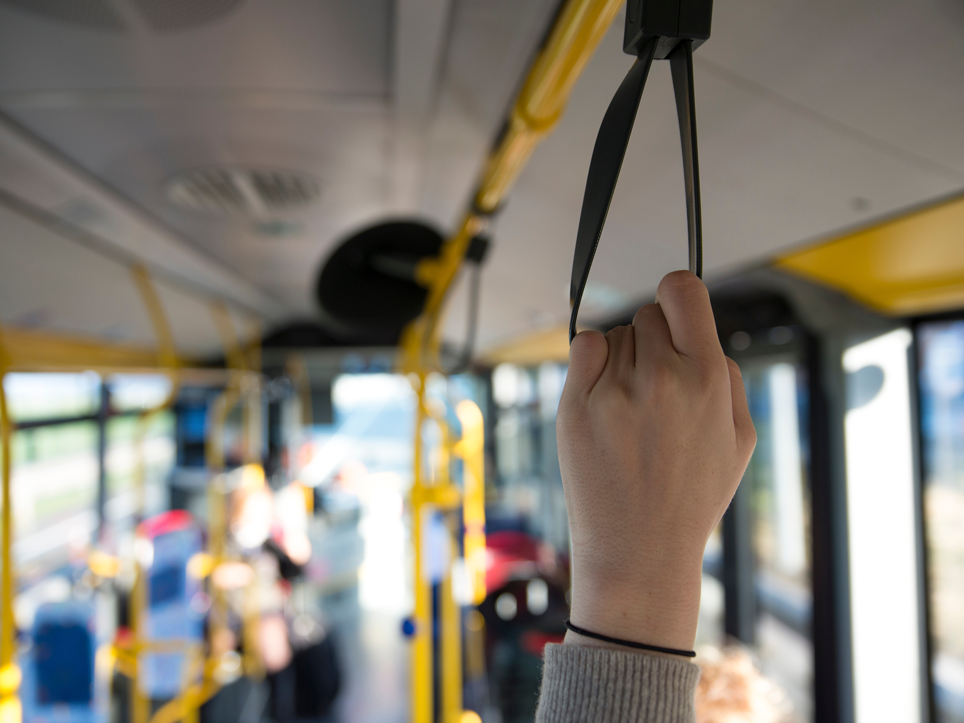Who can lodge a TAC claim?
If you have suffered physical or psychological injuries as a result of a transport accident in Victoria or whilst in a Victorian registered vehicle, you are entitled to lodge a TAC claim with the Transport Accident Commission (TAC).
What are the eligibility requirements to lodge a claim with the Transport Accident Commission (TAC)?
When you submit a TAC claim for compensation, the TAC requires:
- Medical evidence that you have sustained an injury; and
- Evidence that your injury was directly caused by the transport accident i.e. an incident directly caused by the driving of a motor car, motor vehicle (e.g. motorcycle or truck), a railway train or a tram.
Medical evidence
Medical evidence such as hospital admission/discharge summary reports, medical certificates/reports detailing the physical or psychological symptoms you have experienced as a result of the transport accident, diagnosis or aggravation of a pre-existing condition or injury and the treatment required for the accident-related injury can greatly assist the TAC in their consideration to accept or reject a person’s TAC claim.
Transport accident evidence
Prior to lodging a TAC claim, the injured person needs to ensure that they have reported the transport accident to the Police (either at the accident scene or after the accident if the Police did not attend the accident scene), and where relevant, to the train or tram operator.
For accidents which involved a collision between a cyclist (pedal) and a stationary or parked motor vehicle between 9 July 2014 and 26 September 2018, the TAC does not require that a report has been made to a police officer under section 61A of the Road Safety Act 1986 (or otherwise) to consider the TAC claim.
An accepted TAC claim means you can claim the following:
- Medical and like expenses: e.g. hospital care, surgery, medications, consults with your GP, physiotherapist etc. If your injuries prevent you from performing domestic duties, the TAC can pay for cleaning or gardening services upon request.
- Loss of earning (LOE) benefits: If you are unable to return to work due to your accident-related injuries and qualify as an earner and have suffered a loss of earnings, the TAC can pay you LOE benefits for up to 18 months after your transport accident.
Loss of earning capacity (LOEC) benefits: earners
If you remain unable to return to work 18 months after your transport accident, the TAC can pay you LOEC benefits until the three year anniversary of the accident. The TAC will require evidence of your previous earnings (e.g. taxation documents/payslips) and will pay 80% of your previous average weekly earnings (PAWE). If you were a low income earner prior to the accident, the TAC may pay you 100% of your PAWE. The TAC will not pay any LOE benefits for the 5 days immediately after your accident unless you can show that you were experiencing significant financial hardship.
Your medical practitioner (usually your GP) is required to provide you with Certificates of Capacity confirming your incapacity or reduced capacity to work for the period you wish to claim LOE benefits. These Certificates of Capacity are generally valid for 28 days and will need to renewed and provided to the TAC for consideration.
Loss of earning capacity (LOEC) benefits: non- earners
If you were not working at the time of the accident but due to your injuries, you have lost the capacity to work you may be entitled to LOEC benefits 18 months after your accident. The TAC will calculate the loss based on the person’s capacity to earn before the accident i.e. employment which was reasonably available given the person’s training, skill and experience. For example, if the injured person was a student at the time of the accident, the TAC would assess their LOEC benefit based on what the person would have been able to earn upon graduation and commencement of work had they not been injured in the transport accident.
If you suffer significant injuries and your degree of permanent impairment is assessed at 50% or more, the TAC can pay you LOEC benefits until you either resume a capacity to work or you reach retirement age.
- Lump sum compensation: e.g. an Impairment Benefit and/or Common Law damages for your pain and suffering and economic loss. You generally have 6 years from the date of the transport accident to make an Impairment benefit or Common Law damages claim. To learn more about lump sum compensation, visit our website or contact our legal team for a confidential discussion.
If you have not lodged your TAC claim, you should contact the TAC as soon as possible. Generally, you have 12 months from the date of your transport accident to lodge your TAC claim. To lodge your claim, contact the TAC on 1300 654 329 or visit the website.
The TAC has 21 days to make a decision to accept or reject your claim or to request further information. If the TAC does request further information, you must respond to the TAC within 28 days.
In what circumstances can the TAC reject a person’s claim?
Generally, where a person is injured or killed as a result of a transport accident in Victoria or with a Victorian registered motor vehicle whilst interstate, that person or their surviving dependants can make a TAC claim. However, if the vehicle involved in the transport accident was unregistered or uninsured, this can significantly impact the injured person’s eligibility to claim compensation from the TAC.
Unregistered vehicles
If the motor vehicle involved in the transport accident was never registered with VicRoads (or an interstate equivalent) and was used on private land (land publicly or privately owned that is not a highway and members of the public may not enter or remain without permission) at the time of the accident, the TAC is unable to pay compensation to those who are injured or die as a result of that transport accident. However, if the vehicle is capable of being registered, the injured person may still be covered by TAC scheme.
Vehicles such as electric scooters/e-scooters (with an output of less than 200 watts), electric bicycles (with an output of less than 200 watts), motorised wheel chairs (with a 10kph limit) and golf carts cannot be registered with VicRoads. Thus, if your injury was caused by any of the above vehicles, you will not be eligible to claim compensation from the TAC.
Uninsured vehicles
A motor vehicle is considered ‘uninsured’ if it was previously registered with VicRoads (or an interstate equivalent) but the owner of the vehicle has failed to pay their registration (which includes the TAC charge) for at least 12 months.
If at the time of the accident, the motor vehicle involved in the accident was uninsured and the accident happened on private land, the owner of that uninsured vehicle cannot claim compensation under the TAC scheme. In instances where the owner of the uninsured vehicle was involved in a transport accident on a highway, they will be able to claim compensation under the TAC scheme.
Those who are non-owner passengers/drivers of an uninsured vehicle who are injured as a result of the transport accident, are eligible to claim TAC compensation.
Example: Unregistered and uninsured bulldozer
In the case of Smith v TAC [2005] VSCA, an unregistered bulldozer used for logging operations struck a tree and caused the branch to fall on and injure the plaintiff. The bulldozer did not have seatbelts, lights or horn and was not used on a highway. The bulldozer mainly travelled from coupe to coupe (i.e. a road created by a bulldozer to enable access to other areas). The plaintiff lodged a TAC claim which was subsequently rejected on the basis that the bulldozer did not meet the definition of a motor vehicle “used on a highway”. The plaintiff argued that coupes were open to the public such as protestors and tree fellers and should be considered a highway.
It was held that the bulldozer was a motor vehicle being used on a highway (the coupe being determined to be a highway under the relevant definition) and so, the accident was considered a transport accident and the plaintiff was able to claim TAC compensation.
What happens if the TAC decides to reject your TAC claim?
If you believe the TAC’s decision was incorrect or unfair, you can do either of the following:
- Request that the TAC conduct an informal review by a Review Officer. The Review Officer works independently from the team/department who made the original TAC decision which you are disputing. The officer will either change or uphold the original decision. The informal review option is a free service. You have 12 months from the date of the decision to seek an informal review. If you remain unhappy with the outcome of the informal review, you may wish to engage a lawyer for further assistance.
- With the assistance of your lawyer, lodge a dispute application with the TAC. You have 12 months from the date of the TAC’s decision (to reject your claim) to lodge a dispute application. Once lodged, your lawyer may request further supportive information and prepare a statement on your behalf. Once the statement is provided to the TAC, your lawyer will conference with the TAC to try to resolve your dispute.
- If your dispute remains unresolved after the above dispute application process, you may request a review of the TAC’s decision at the Victorian Civil and Administration Tribunal (VCAT).
Conclusion
The TAC insurance scheme was intended to benefit injured people and dependants of people who die as a result of a transport accident. However, if your initial TAC claim is rejected and you fail to take the necessary steps to overturn the rejection, you will not be eligible to claim TAC benefits and compensation. As discussed above, there are some important exclusions under the Transport Accident Act 1986 which you must be aware of when lodging or disputing a TAC decision. Such exclusions aim to deter and penalise people from driving unregistered and uninsured motor vehicles.
If you or a loved one have suffered an injury as result of a transport accident, it is important to get legal advice to know your rights and entitlements. To arrange your free initial consultation, contact our legal team on (03) 9321 9988 or click here to submit an online enquiry.


